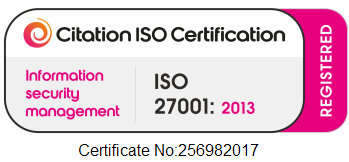Top Future Recruitment Trends for Councils to Watch in 2023 and Beyond
As the job market continues to evolve, it’s important for councils to stay ahead of the curve and keep up with the latest recruitment trends. This is crucial to attract and retain top talent and ensure a successful and efficient recruitment process. In this blog, we’ll dive into the top trends that councils need to be aware of in 2023 and beyond to stay ahead in their recruitment efforts. From the use of AI and automation to the importance of diversity and inclusion, we’ll cover it all. So, if you’re ready to stay ahead of the curve and learn about the future of recruitment, keep reading!
What we learned in 2022
2022 brought about significant changes in the workplace, and recruiters have had to adapt quickly to stay afloat. The skills and labour shortage had given workers more bargaining power in their job search, leading to a shift in the balance of power in recruitment. Employees were able to negotiate a broader range of job perks and benefits, organisations had to step up their game to attract and retain top talent.
One of the most prominent workplace trends that emerged in 2022 is hybrid working, where employees split their time between the office and home or another remote location. Along with hybrid working, another lesson learned in 2022 is the importance of being agile and taking advantage of employees’ skills. Companies have learned how to get the most out of their staff by moving them to areas where their skills and experience can be put to good use. Hiring managers were becoming increasingly interested in hearing about a candidate’s relevant skills across the wider business.
Finally, last year we saw a growing focus on diversity and inclusion in the workplace, and this trend is only set to continue into 2023. Companies will place their DEI initiatives at the forefront of their job advertisements, highlighting their commitment to creating a diverse and inclusive workplace.
In conclusion, 2022 was a year full of change and adaptation for recruiters, as they navigated the shifting landscape of the job market and strived to find the best talent for their organisations.
Recruitment Trends for 2023
As the job market shifts it’s crucial for councils to stay ahead of the latest recruitment trends. With competition for top talent becoming increasingly fierce, councils must be proactive in their recruitment efforts in order to attract and retain the best employees. In 2023, new and emerging trends will impact the way councils approach recruitment, from the use of automation to a focus on diversity, equity, and inclusion.
Economic uncertainties
A quarter (25%) of employers have said their staffing costs have increased over the previous three months and 1 in 5 adults said rail strikes had disrupted travel and commuting plans in recent weeks. These economic challenges will have an impact on councils’ ability to find work and hire in the coming year as well as their recruitment strategy and approaches.
Revamping your interview process
As Gen Z’s begin to make up almost 27% of the global workforce, it’s important councils revamp their interview process if they want to secure future talent. The hustle and bustle of everyday life mean the younger workforce won’t complete an online job application if the hiring process is too long or complicated. Therefore, councils will need to implement a straightforward interview process using the best candidate engagement features and user experience in mind, if they haven’t done so already!
Data-centric recruitment and data security
Data security and data-driven recruitment are going to be essential in 2023. When posting job listings, councils will need to use technology that targets the right candidates at the right time. Using data can also help councils source talent with the skills and previous experience needed without manually looking through a sea of applications. CV screening technology for example can accurately verify candidates and ensure they are suitable for the role before moving them along the recruitment process, which will improve time to hire and quality of hire.
Automation tools
Hiring managers are always looking to optimise their hiring methods to reduce time and cost when recruiting. Implementing automation tools can have a huge positive impact, meaning councils can streamline their recruitment, interview and onboarding process with a few simple clicks of a button!
Talent pool dependency
Talent pools can allow councils to combat the current skills deficiency by offering an effective way to propose vacancies to pre-existing candidates in their database. This can not only encourage talent retention and increase company loyalty but also give councils the ability to hire more competitively in the future.
DEI takes priorities
In 2023 DEI is set to become the number one priority for many candidates meaning councils will need to be more attentive to the language used and respectful of more diverse pools of applicants. What’s more, candidates are also seeking more transparency about salary and equality in the workplace and so councils shouldn’t leave any gaps in their recruitment process for assumptions – complete transparency will be a must-have. In addition, transparency can lead to more diverse candidates and other equality and inclusion factors.
In conclusion, the future of recruitment is shaping up to be a rapidly changing landscape, and it’s crucial for councils to embrace these trends for a successful and efficient recruitment process. Keeping an eye on the latest developments and being proactive in your recruitment efforts can help ensure that your council remains at the forefront of the job market and continues to attract top talent.
Share this post and follow us on social media!
Like our blogs? Sign up for our newsletter




Comments are closed